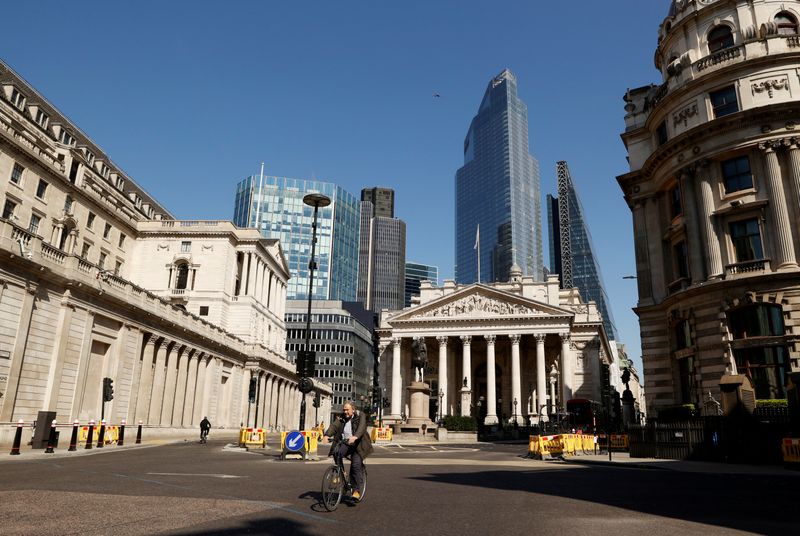By Lawrence White and Sinead Cruise
LONDON (Reuters) - The novel coronavirus has upended how banks manage lending risk, with decades of data rendered moot by a once-in-a-lifetime mix of global economic shutdowns, unprecedented government support and an uncertain path to recovery.
Lenders are scrambling for new insights as systems that rely on historical default data to model risk struggle to capture how the pandemic has disrupted the long-term prospects for swathes of the economy.
The problem is particularly acute where the virus is reshaping whole industries such as travel, hospitality and sport. Government support schemes that are propping up some firms are also clouding the outlook.
"The one thing that I have learned in 34 years in banking is that credit risk models and scorecards will work really, really well except when there is a significant abnormal shock," said Noel Quinn, Chief Executive of HSBC (L:HSBA).
"We just had one of the most significant abnormal shocks ever."
Banks will have to reassess how they model, Quinn said, replacing broad geographical assessments with more detailed industry and sub-sector specific systems.
One example would be a British pub with a beer garden. It will likely be able to serve many more customers than one with only indoor space under social distancing rules - a brighter prospect unlikely to be captured by existing models.
TECH SOLUTIONS
Banks in the U.S. and Europe, which are far more robust than they were at the onset of the 2008 crisis thanks to years of capital-building, reported differing levels of bad loan provisions for the first quarter of this year based on their own economic forecasts, relative exposure to riskier credits and interpretation of new accounting rules.
But even if lenders could agree on those factors, the pandemic has underlined the need for smarter, more detailed and more forward-looking models to distinguish good loans from bad.
"These backward looking models are designed to tell you that you have a problem, they're not designed to tell you what you do about it," said Philip Hammond, a former British finance minister who now advises SoftBank Group Corp-backed (T:9984) OakNorth.
London-based OakNorth, which specialises in lending to small businesses, is marketing a new system using data and insight from sector experts to advise banks on how individual loans in their portfolio will perform through the pandemic and its aftermath.
"Correlations in this cycle are totally different- if you don't have a forward looking way of looking at risk, you're not looking at your risk properly," said Chief Executive Rishi Khosla.
PNC Bank (N:PNC) in the United States is already using the software, the two lenders announced earlier this month, while other big banks such as Standard Chartered (L:STAN) are looking to build or update their models in partnership with fintech firms.
"There is a regular hunt to...see if (new technology) can provide better insights than the historical data, by looking at multiple sectors and linking the data together," said Andy Halford, Chief Financial Officer at Standard Chartered.
HIDDEN RISKS
In Britain, regulators have told banks that when making provisions, they must forecast whether a borrower taking a mortgage payment holiday is likely to face a longer-term cashflow problem.
One in six mortgages in Britain are now subject to payment deferrals, according to data from industry body UK Finance.
Banks have to calculate which payments are likely to resume without a clear picture of which borrowers will keep their jobs as the government's furlough scheme potentially only delays layoffs.
Data compiled by consulting firm EY shows that European banks' cost of risk, a measure of the rate of loan losses in a portfolio, trebled from its level at the end of 2019 between January and March, albeit only to one percent.
But the rate is set to rise further, analysts said, since the period only captured the very start of the economic shutdown in Europe.
The uncertainty created by the new environment may also offer good lending opportunities which banks could miss if traditional models flag such clients as too risky.
That could stymie the recovery for both banks and borrowers alike.
"The back history here is not going to be a predictor of the future - trying to model coming out of a virus is not easy," StanChart's Halford said.
